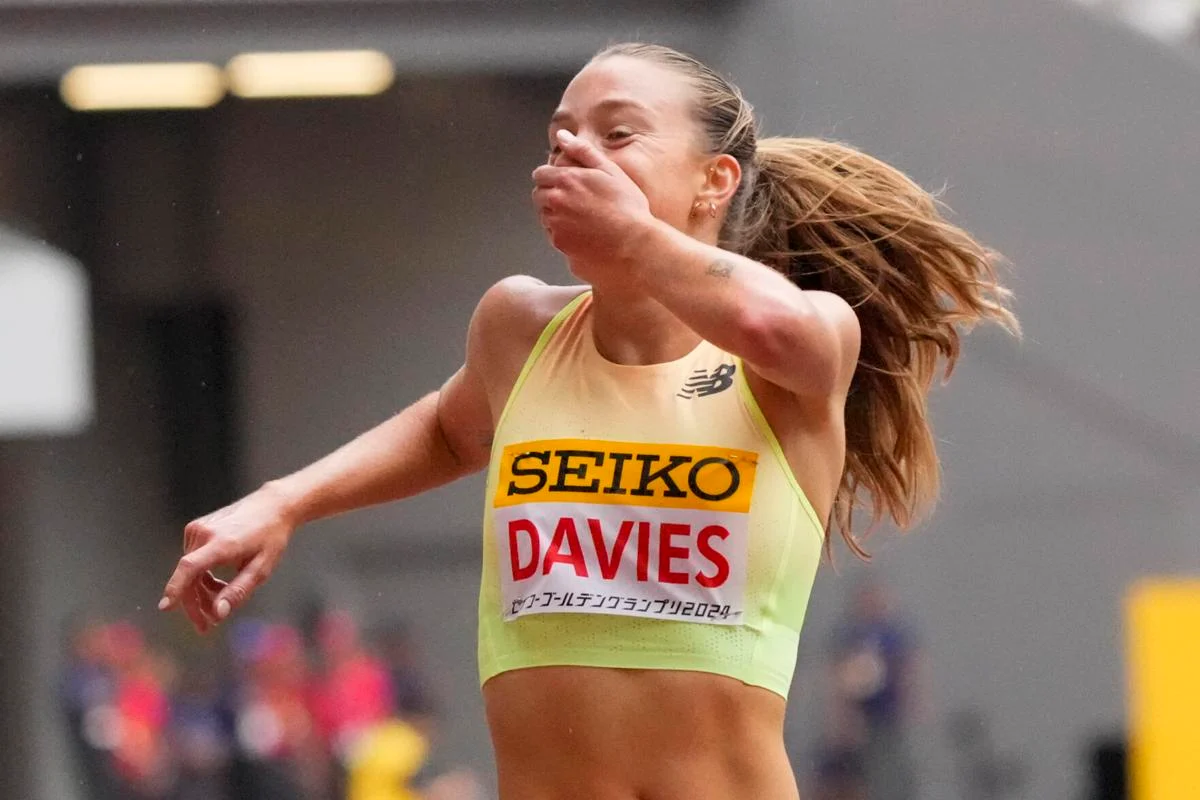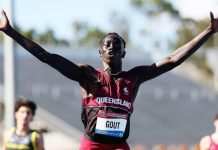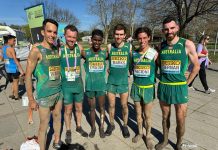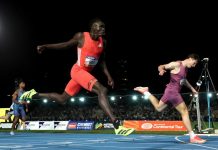When Rose Davies shaved just over two seconds off Jess Hull’s Australian record for 5000 metres in running 14:41.65 in Tokyo last weekend (19 May), I was more surprised than I should have been.
We should’ve seen it coming. Since she emerged on the national radar by winning the 2020 Zatopek 10,000 (Covid-delayed until January, 2021), Davies has improved incrementally until reaching this point. And just half-way into her twenty-fifth year, there is every likelihood she’s nowhere near done yet.
Perhaps it is just that Davies’ backstory is not quite as illustrious as that of Hull, nor of Benita Willis, her two immediate predecessors as national record-holder. Hull had successively been an NCAA champion and runner-up at 1500 and a world championships semi-finalist before she ran 14:43.80 in Monaco in 2020. Willis was a world championships finalist at 5000 metres, a world indoor championships sixth placer at 3000 and twice a top-six finisher in the world cross-country short-course when she ran 14.47.60 in Berlin in 2002.
Davies cannot boast those sort of accomplishments – not yet anyway. But she has been broadly getting a little better each year and having made her Olympic debut at 5000 at Tokyo 2021 now stands a good chance of making her mark at Paris 2024. As already noted, it has been a steady rise rather than one marked by sudden impressive advances.
Embed from Getty Images
In her break-through Zatopek win in 2021, Davies ran an astute tactical race allied with a decisive turn of speed over the final 200 metres. Most pre-race attention had focused on Genevieve Gregson, but she was not a factor in the last five laps which were fought out by Davies, Isobel Batt-Doyle and Canada’s Andrea Seccafien.
Seccafien was next to go. Then, as they approached the 200 to go mark, Batt-Doyle eased off the inside, perhaps hoping to force Davies to run wide on the final bend if she wanted to get past. Davies instead squeezed through the gap created by her opponent and away to a narrow but decisive win, 31:39.97 to 31:41.43.26 (ultimately, both wound up qualifying for, and running, the 5000).

It was the same story when the 2021 Zatopek was run (in early 2022). A hot and humid night was no stage for fast times but again Davies ruled the latter part of the race. This time, just at the point five laps from home where some may have been contemplating a surge, Davies took the lead and slowed the pace for a couple of laps. From there she wound it up again to see off Eloise Wellings by some 15 metres in 32:58.45.
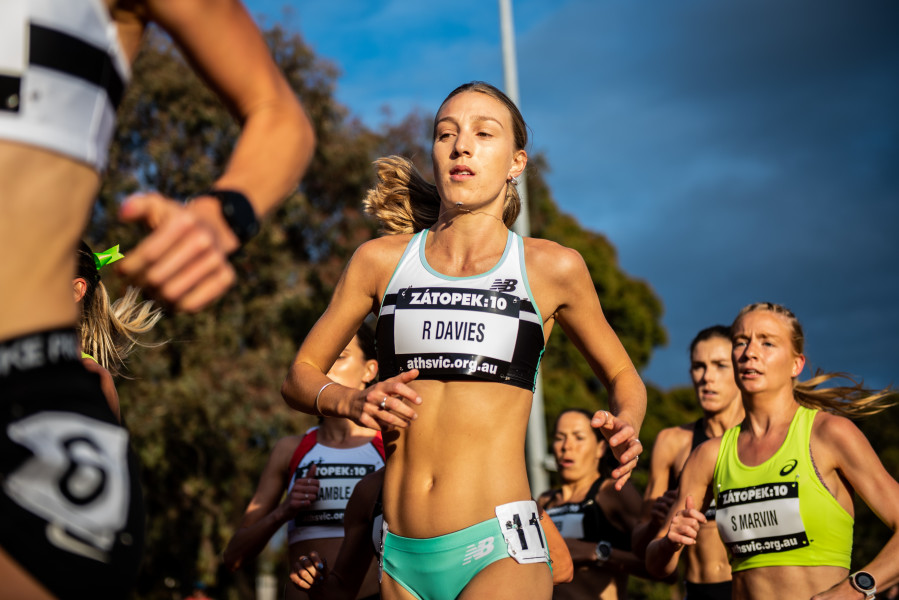
Breaking the Covid-determined schedule of the two previous years, the 2022 Zatopek returned to its December timing. This time Davies, seeking a hat-trick of wins, was favourite. But it almost seemed as if her two wins had made her over-confident in her closing speed. She sat back in the pack as the field dawdled through 5000 metres in 16:42 and continued to sit back as Leanne Pompeani cranked up the pace lap-by-lap en route to a sub-15:40 second half.
When Davies launched her kick, she was unable to get past. Pompeani held her off and Batt-Doyle came through from a considerable distance back to push her down to third. The 2023 race was almost a carbon copy, except this time it was Lauren Ryan (who will run 5000 at the Pre Classic this Saturday, 25 May) doing the slow-down followed by the gradually accelerating long run home. Davies was third, Holly Campbell taking second place.
The two Zatopek races obscured continued improvement at 5000 metres and below. Davies ran second to Hull in the national 5000, improving to 15:07.49 and her 3000 to 8:49.86. In between those two runs she slashed her 10,000 best to 31:18.54 in San Juan Capistrano.
Davies ran the 5000 at the world championships in Oregon, once again going out in the heats.
Discounting the disappointment at the Zatopek, 2023 continued Davies rising trajectory, She won the selection trial for Bathurst23 world cross-country, then finished 23rd around the gruelling Mt Panorama course. She again improved her 3000 best, this time to 8:44.07 in the Golden Grand Prix in Yokohama (Tokyo national stadium was being upgraded).
In the 5000 at the world championships in Budapest, Davies was tenth in her heat in 15:07.93. Either a couple of places higher or a couple of seconds faster would have seen her in the final, so this represented a significant improvement on Tokyo21 and Eugene22.
Right now, Davies is in career-best form. All her previous tactical ‘nous’ was seen in her crucial victory in a slowish 5000 at the national championships in Adelaide. Earlier she broke 15 minutes in running 14:57.54 to defeat Batt-Doyle at the Melbourne meeting then a personal best 8:39.81 for 3000 behind Hull and Georgia Griffith in Sydney. Her two races on the international circuit – both at 5000 – have yielded a 10-second personal best of 14:47.86 at the Suzhou Diamond League and the national record 14:41.65 in Tokyo.
Statistically, four of Davies’ five highest ranked career performances have come in 2024. The Tokyo, Suzhou and Melbourne 5000s are numbers 1,2 and 5, respectively, the Sydney 3000 is number 4. Her 10,000 personal best is number 3.
As impressive as the numbers are, however, it is the manner of Davies’ racing that stands out at the minute. After a steady but unspectacular rise, she could be poised for another big step in Paris.


